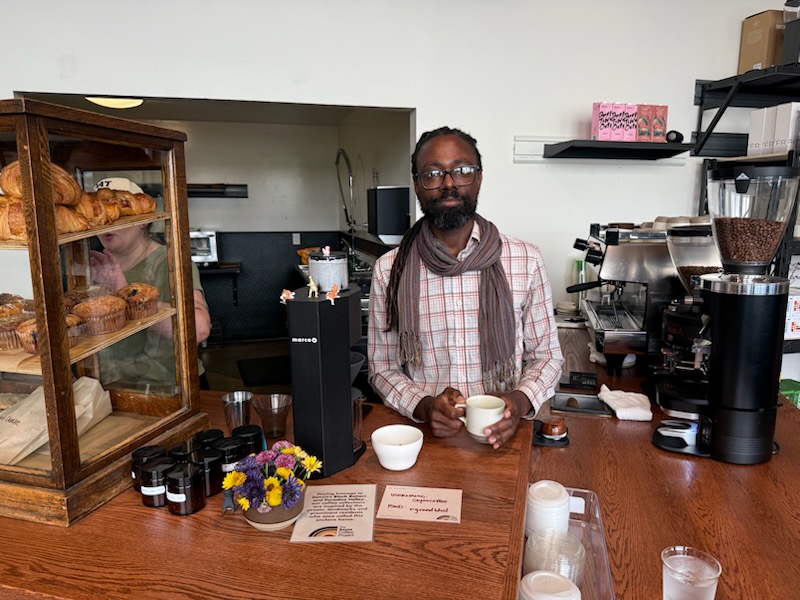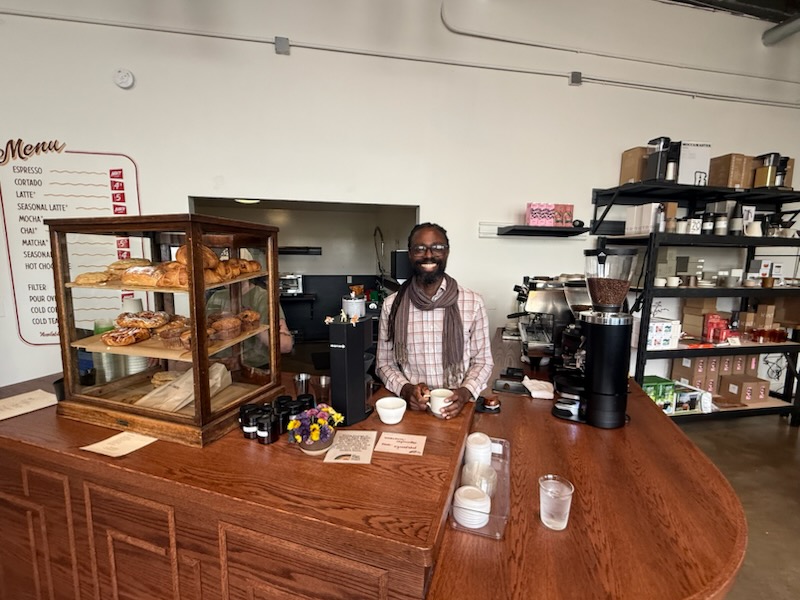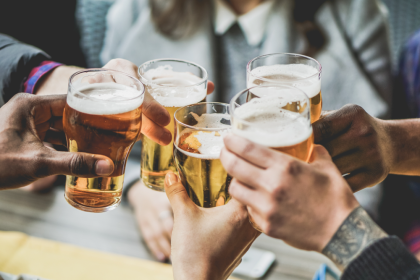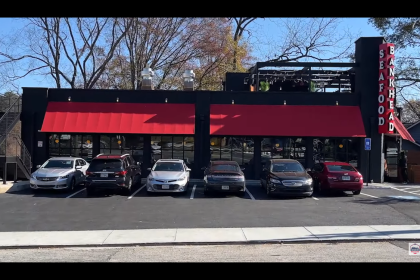
In the heart of Detroit’s North End, something special is percolating—Sepia Coffee Project, a minority-owned, Black-led coffee roastery redefining how communities experience coffee. Led by Martell Mason, CEO, and head roaster, Sepia Coffee is more than just a café. It’s a cultural movement, a history lesson, and a global journey—all poured into one perfect cup.
Located at 2831 E. Grand Blvd, Sepia Coffee symbolizes resilience, ownership, and flavor. But its story begins far from Detroit.
Mason’s journey into coffee isn’t your typical barista-to-brewer story. With a background in international affairs and graduate work focused on global value chains, he’s spent over a decade working in the coffee industry behind the scenes. Before founding Sepia, Mason was a coffee trader with an import business in Istanbul, sourcing and moving coffee throughout the Gulf region.
“I wanted to go to the root—to the farm level,” Mason explains. “It’s about ensuring equity in getting these goods to market.” That global mindset informs every bean Sepia source and every partnership they form, from farm to cup.
Returning to Detroit in 2021, Mason saw a city rich in potential and underserved when it came to specialty coffee.
“The coffee scene here wasn’t where I thought it should be,” he says. “So we’re doing our part to elevate quality, service, and platforms so more underserved communities within Detroit can access good coffee.”

Sepia Coffee is intentional about who it serves—and who it partners with. It’s about creating opportunities, cultivating dignity, and telling stories often unheard of.
The brand’s signature blends—Harmony, Black Bottom, and Paradise—are more than just tasting notes. They’re tributes to Detroit’s lost neighborhoods, Black Bottom and Paradise Valley, which were demolished in the 1960s for freeway construction. These collections don’t just wake you up; they reconnect you to a rich and complicated past.
“We want people to know we’ve always been part of this process,” Mason says. “Coffee would not be the second most traded commodity in the world if it weren’t for us. We must tell those stories.”
Every detail at Sepia speaks to thoughtful curation and cultural pride. Their Brazilian coffee beans come from Afro-Brazilian farmers and are imported through a Black-owned importing company. Even their oat milk—offered by default with no upcharge—is produced by Ghost Town Oats, a Black-owned, Black-led brand.
Why oat milk? “A lot of our community is lactose intolerant,” Mason notes. “We wanted to ensure accessibility without extra cost. Everyone deserves quality.”
Their stylish cups and bowls are crafted by Kinto, a Japanese ceramic brand chosen not just for aesthetics but also for the energy and experience they bring to each drink.
Sepia isn’t just brewing coffee; it’s baking relationships. They’ve partnered with Detroit-based Crispelli’s Bakery and hope to soon feature pastries from up-and-coming baker Walter Katz, currently in the running for a 2025 grant.
As Mason says, “We all deserve to enjoy great things—regardless of income level. That’s the essence of community.”
If you’re in Detroit—or even halfway across the world—you can experience Sepia Coffee. They ship globally, but there’s something uniquely magical about stepping into the Grand Blvd café. The music, the smell of fresh-roasted beans, the aesthetic cups—it’s a multi-sensory love letter to culture, craft, and community.

Here are three reasons you should make Sepia your go-to coffee destination:
- Excellent Quality – Each cup is a masterpiece, from ethically sourced beans to precision roasting.
- Excellent Service – Hospitality rooted in culture and inclusion.
- Great People – Led by visionaries committed to building a better coffee industry, one sip at a time.’
Mason believes Sepia isn’t just a coffee shop—it’s a model for urban communities across America. Sepia’s blueprint is replicable and scalable, from Atlanta to Oakland and Philadelphia to Chicago.
“This is about creating access. It’s about ensuring our communities aren’t just included in development—they lead it.”
So, the next time you drink a cup of coffee, think beyond the flavor. Think of the farm, the people, and Sepia.
Because in Detroit, coffee isn’t just a beverage—it’s a movement.
















